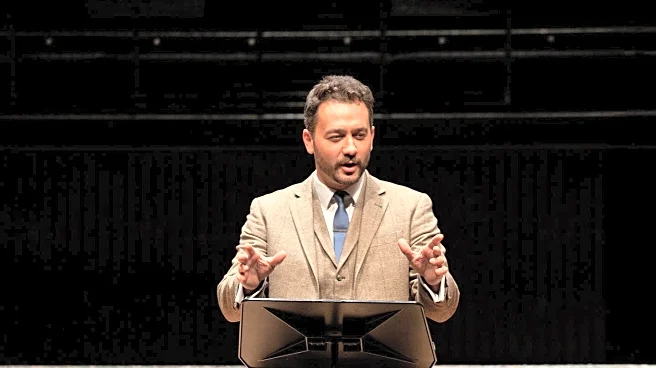What's Happening?
The Los Angeles Angels are focusing on the development of George Klassen as a starting pitcher, despite his below-average control. Klassen has shown promising performance with a 1.17 ERA and 32 strikeouts over 23 innings in his last four starts for Double-A Rocket City. His walk rate has improved significantly from 17.3 percent to 10 percent over the course of the year, indicating progress in his command. Despite occasional struggles, including six starts with five or more earned runs, Klassen has also demonstrated potential with six starts featuring eight or more strikeouts. The Angels are committed to giving Klassen every opportunity to develop as a starting pitcher over the next couple of years, even as the team faces a broader injury crisis.
Why It's Important?
The development of George Klassen is crucial for the Los Angeles Angels as they navigate a challenging period marked by injuries. Klassen's potential as a starting pitcher could provide the team with much-needed depth and stability in their rotation. His improvement in walk rate and strikeout ability suggests he could become a reliable asset for the Angels. This focus on nurturing young talent is essential for the team's long-term success, especially as they aim to remain competitive in the league. Klassen's progress could also influence the Angels' strategic decisions regarding their pitching lineup and overall team composition.
What's Next?
The Angels are expected to continue investing in Klassen's development, providing him with opportunities to refine his skills and address his control issues. As Klassen gains experience, he may transition into a more prominent role within the team's pitching staff. The Angels' management will likely monitor his performance closely, adjusting their strategy based on his progress. Additionally, the team's handling of the current injury crisis will be pivotal in determining their competitive standing in the league. Stakeholders, including fans and analysts, will be watching to see how the Angels balance immediate needs with long-term player development.
Beyond the Headlines
Klassen's journey highlights the broader challenges faced by MLB teams in developing young talent amidst competitive pressures and injury setbacks. The Angels' approach to Klassen's development may set a precedent for how teams manage promising players with control issues. This situation also underscores the importance of strategic player development in maintaining a competitive edge in professional sports. The ethical considerations of player management, including balancing immediate performance demands with long-term career growth, are critical in shaping the future of the sport.









